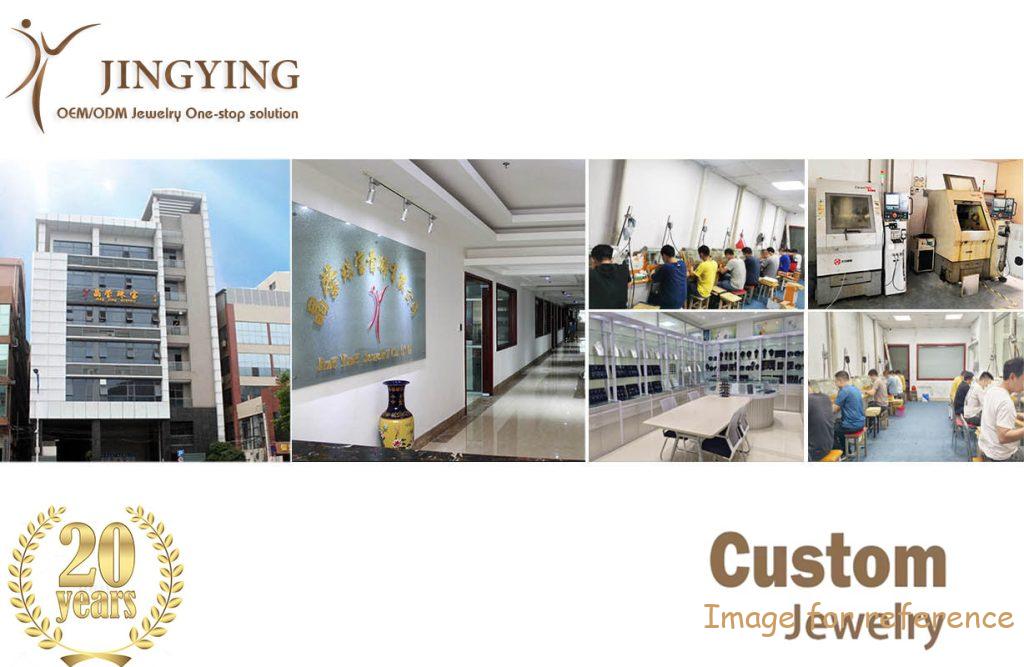Hur man arbetar med ett specialdesignat guldpläteringsarmband OEM/ODM Factory: The Complete 5,000-Word Guide
Introduktion: The Gold Plating Bracelet Market Opportunity
The global gold-plated jewelry market is projected to reach $36.8 miljarder med 2030, med armband som ett av de snabbast växande segmenten. Oavsett om du lanserar ett modemärke, utöka din smyckeslinje, or creating custom corporate gifts, partnering with the right Oem (Tillverkare av originalutrustning) eller ODM (Original Design Tillverkare) factory is crucial for success.

Detta comprehensive 5,000-word guide covers:
-
Förstå OEM vs. ODM for Gold Plating Bracelets
-
How to Find & Vet the Right Factory
-
Urval: Mässing vs. Sterling Silver vs. Copper Base
-
Gold Plating Techniques & Thickness Standards
-
Custom Design Process from Concept to Production
-
Minsta beställningsmängd (MOQs) & Pricing Negotiation
-
Kvalitetskontroll & Internationell efterlevnad
-
Förpackning & Branding Customization
-
Frakt, Logistik & Import Considerations
-
Case Studies of Successful Brands
I slutet, you’ll know exactly how to develop high-quality, custom gold-plated bracelets with a reliable manufacturing partner.
1. Förstå OEM vs. ODM for Gold Plating Bracelets
Oem (Tillverkning av originalutrustning)
-
Du tillhandahåller: Complete designs, tekniska paket, and specifications
-
Factory executes: Manufacturing based on your requirements
-
Bäst för: Established brands with in-house designers
ODM (Original designtillverkning)
-
Factory provides: Existing designs you can customize (logo, plätering, etc.)
-
Snabbare produktion: No need for full design development
-
Bäst för: Startups or brands looking for ready-made solutions
Hybrid tillvägagångssätt: Many factories offer båda tjänsterna—you can modify their base designs while adding custom elements.
2. How to Find & Vet the Right Factory
Where to Source Manufacturers
-
Alibaba (Filtrera för “Gold Supplier” eller “Assessed Supplier”)
-
Globala källor (More curated, higher-end factories)
-
Mässor (Hong Kong Jewelry Fair, JCK Las Vegas)
-
Sourcing Agents (Help negotiate and manage quality)
Key Vetting Criteria
✅ Gold Plating Expertise (Ask about microns, durability tests)
✅ Materialalternativ (Mässing, 925 silver, rostfritt stål)
✅ Sample Policy (Always order samples before bulk production)
✅ Certifieringar (Iso 9001, Sg, RoHS, REACH compliance)
✅ Kundportfölj (Ask for examples of past work)
Röda flaggor att undvika
❌ Ingen fysisk fabriksadress
❌ Unwilling to provide samples
❌ Poor communication responsiveness
3. Material Selection for Gold-Plated Bracelets
| Basmetall | Proffs | Nackdelar | Bäst för |
|---|---|---|---|
| Mässing | Prisvärd, hållbar | May contain nickel (test for allergies) | Modesmycken, high-volume orders |
| 925 Sterlingsilver | Hypoallergen, premie | Högre kostnad | Lyxiga märken, känslig hud |
| Koppar | Warm tone, molds easily | Blixtar snabbt | Hantverkare, boho stilar |
Gold Plating Thickness Guide
-
0.5 mikron (Light plating, lasts 6-12 månad)
-
1-2 mikron (Standard for fashion jewelry, 1-3 år)
-
3+ mikron (Tung plätering, 5+ år med försiktighet)
För tips: For bracelets (which get more friction), opt for åtminstone 2 mikron.
4. The Custom Design Process Step-by-Step
Fas 1: Designutveckling
-
Provide Inspiration (Skisser, Pinterest-tavlor, competitor references)
-
3D -modellering (Factory creates CAD renders for approval)
-
Prototype Sampling (Wax or 3D-printed sample)
Fas 2: Gold Plating Process
-
Metallgjutning (Lost-wax or die-casting)
-
Putsning (Mirror finish before plating)
-
Galvanisering (Gold bath with controlled micron thickness)
-
Post-Plating Sealant (Anti-lack beläggning)
Fas 3: Final Production
-
Quality inspection (Check for plating uniformity, låsfunktion)
-
Förpackning (Anpassade lådor, arm, or pouches)
5. MOQs & Pricing Negotiation Strategies
Typical Minimum Order Quantities
-
OEM Custom Designs: 300-500 bitar
-
ODM Modifications: 100-200 bitar
-
Lagerdesigner: Så lågt som 50 bitar
Prissättningsfaktorer
-
Base metal (Silver costs more than brass)
-
Pläteringstjocklek (3µm costs 30-50% more than 1µm)
-
Gemstone additions (Cz, lab diamonds)
-
Engraving complexity
Negotiation Tips:
-
Start with a small trial order (even if unit cost is higher)
-
Begära bulk discounts på 1,000+ bitar
-
Compare 3-5 fabriker before deciding
6. Kvalitetskontroll & Efterlevnad
Must-Have Tests for Gold-Plated Bracelets
✔ Saltspraytest (Korrosionsbeständighet)
✔ Adhesion Test (Tape peel check for plating)
✔ XRF Analysis (Verifies gold thickness)
✔ Lead/Nickel Safety (Meets EU & amerikanska standarder)
Certifications to Request
-
Iso 9001 (Kvalitetsledning)
-
SGS Report (Material composition)
-
CPSIA/REACH (Child safety & chemical compliance)
7. Förpackning & Branding Customization
Anpassade förpackningsalternativ
-
Eco-Friendly Boxes (Recycled paper, vegan leather)
-
Branded Inserts (Tackkort, skötselanvisningar)
-
Barcode Labels (For retail compliance)
För tips: Investera i unboxing experience—it boosts social media sharing.
8. Frakt & Logistik
Incoterms to Understand
-
EXW (Ex Works) – You handle all shipping
-
FOB (Gratis ombord) – Factory delivers to port
-
DDP (Levereras tullbetald) – Doorstep delivery (easiest but costlier)
Import Considerations
-
Tariffs (Check HS codes for jewelry)
-
Amazon FBA Prep (If selling online)
9. Fallstudier: Brands That Nailed It
Fallstudie 1: Mejuri
-
Strategy: Partnered with Thai OEM for high-end gold vermeil
-
Resultat: $140M valuation with 60% profit margins
Fallstudie 2: Local Chinese Brand “YFN”
-
Tactic: Used ODM factory for customizable charm bracelets
-
Resultat: 10,000 units sold in first 6 månad
10. Common Mistakes & How to Avoid Them
| Misstag | Lösning |
|---|---|
| Choosing the wrong base metal | Test samples for allergies |
| Not verifying plating thickness | Demand XRF reports |
| Underestimating lead times | Tillägga 2-3 weeks buffer |
Slutsats: Your Roadmap to Success
Working with a gold plating bracelet OEM/ODM factory requires careful planning but offers huge rewards. Follow this blueprint:
-
Decide OEM vs. ODM based on your design needs
-
Källa & vet 3-5 fabriker before selecting
-
Beställ prover to test quality
-
Förhandla pris & MOQs strategically
-
Implement strict QC före leverans
Nästa steg:
-
Download our free factory vetting checklist
-
Get our trusted supplier shortlist
